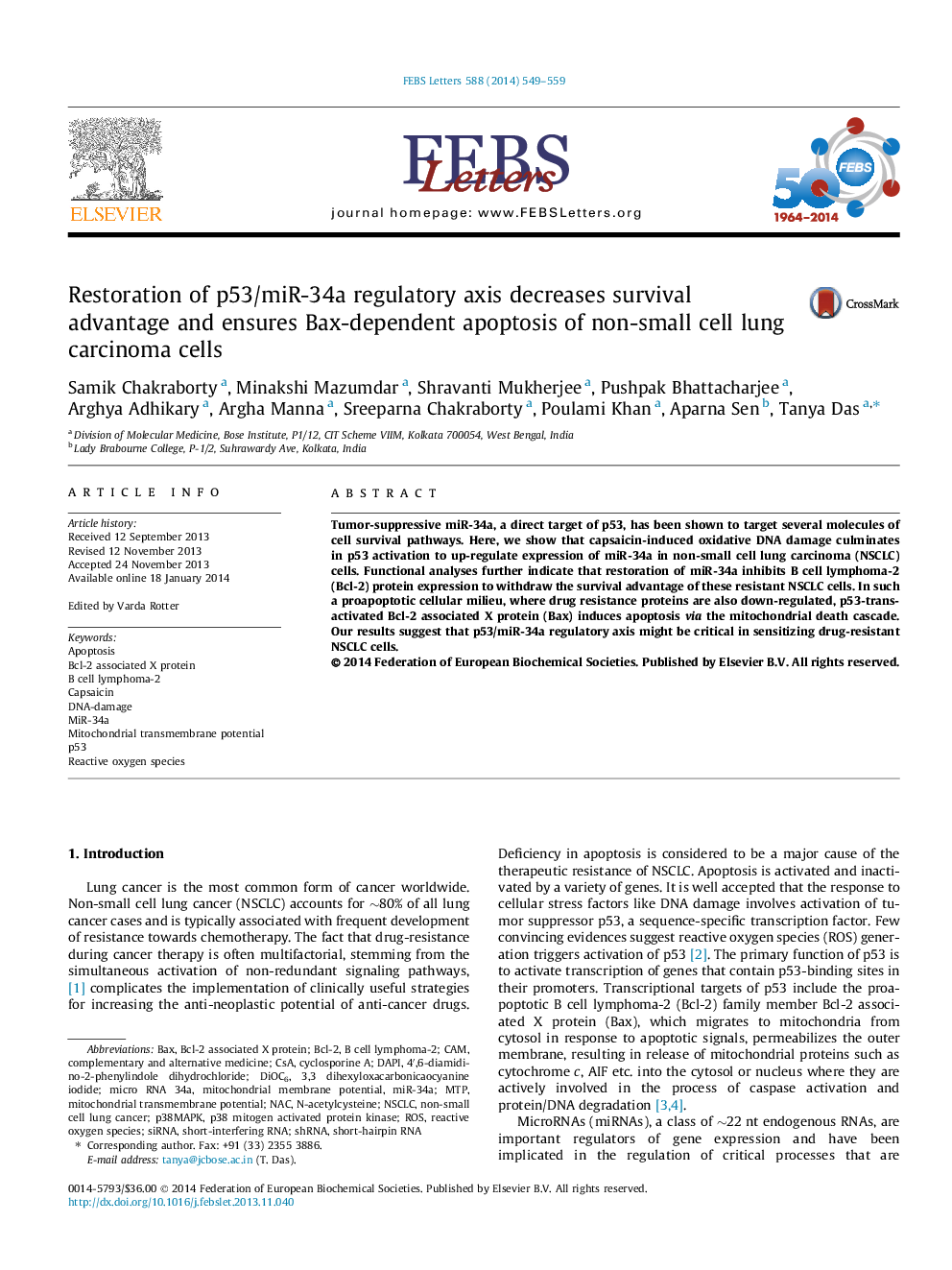| کد مقاله | کد نشریه | سال انتشار | مقاله انگلیسی | نسخه تمام متن |
|---|---|---|---|---|
| 2047722 | 1074016 | 2014 | 11 صفحه PDF | دانلود رایگان |

• We examined the apoptotic role of capsaicin on drug resistant A549 lung cancer cells.
• Capsaicin triggers ROS generation and subsequently exerts DNA-damage.
• DNA-damage activates p53 and p53 transactivates the pro-apoptotic protein Bax.
• p53 activates the pro-apoptotic miR-34a to down-regulate the anti-apoptotic Bcl-2.
• Activation of the intrinsic pathway leads to the initiation of the apoptotic cascade.
Tumor-suppressive miR-34a, a direct target of p53, has been shown to target several molecules of cell survival pathways. Here, we show that capsaicin-induced oxidative DNA damage culminates in p53 activation to up-regulate expression of miR-34a in non-small cell lung carcinoma (NSCLC) cells. Functional analyses further indicate that restoration of miR-34a inhibits B cell lymphoma-2 (Bcl-2) protein expression to withdraw the survival advantage of these resistant NSCLC cells. In such a proapoptotic cellular milieu, where drug resistance proteins are also down-regulated, p53-transactivated Bcl-2 associated X protein (Bax) induces apoptosis via the mitochondrial death cascade. Our results suggest that p53/miR-34a regulatory axis might be critical in sensitizing drug-resistant NSCLC cells.
Journal: FEBS Letters - Volume 588, Issue 4, 14 February 2014, Pages 549–559